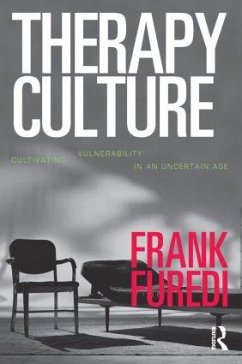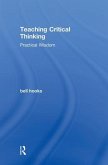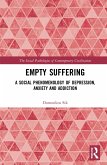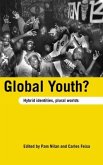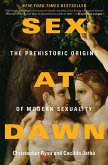First published in 2004. Therapy Culture explores the powerful influence of therapeutic imperative in Anglo-American societies. In recent decades virtually every sphere of life has become subject to a new emotional culture. Professor Furedi suggests that the recent cultural turn towards the realm of the emotions coincides with a radical redefinition of personhood. Increasingly, vulnerability is presented as the defining feature of people's psychology. Terms like 'at risk', 'scarred for life' or 'emotional damage' evoke a unique sense of powerlessness. Furedi questions widely accepted thesis that the therapeutic culture is primarily about imposing a new conformity through the management of people's emotions. Through framing the problem of everyday life through the prism of emotions, therapeutic culture incites people to feel powerless and ill. Drawing on developments in popular culture, political and social life, Furedi provides a path-breaking analysis of the therapeutic turn.
Hinweis: Dieser Artikel kann nur an eine deutsche Lieferadresse ausgeliefert werden.
Hinweis: Dieser Artikel kann nur an eine deutsche Lieferadresse ausgeliefert werden.
'Professor Furedi has written an important book ... which is essential to the understanding of our times.'
- Theodore Dalrymple, Sunday Telegraph
'"If you give it your little finger it will soon have your whole hand," Sigmund Freud said of psychoanalysis in 1900. He had obviously seen the future. As sociology professor Frank Furedi says in his new book Therapy Culture, we live in a culture that takes emotions very seriously.' - Ursula Kenny, The Observer
'Furedi forensically examines this brave new emotional world: the rush of counsellors to the site of every trauma, the ways in which economic problems are recast as psychological phenomena, the cult of the Victim, the decline of political activism.' - Melissa Benn, The Independent
'Therapy is indeed the new opium of the people, as Frank Furedi makes clear in this fascinating, readable - and disturbing - book.' - Virginia Ironside, The Independent
Forensically examines this brave new emotional world - The Independent
This is what our life is all about. Instead of seeking a treatment for it, we should try living it. - The Times
'Can it really be such a bad thing that we are now more aware of the place of mental health in our make-up? Furedi leaves us in no doubt that the therapy culture has invaded our media, our workplace, our intimate relationships and our politics. It is an interesting polemic. We should be grateful for the balance this book inspires'
- Community Care 25/4/04
'Furedi gives us much food for thought that we would do well to consider ... This book highlights the dichotomy between schools as centres of learning or of socialisation.' - Alan McLean, Times Education Supplement (Scotland)
'I enjoyed this book, and found it compulsive reading.' - www.AutoBiographyJournal.com
- Theodore Dalrymple, Sunday Telegraph
'"If you give it your little finger it will soon have your whole hand," Sigmund Freud said of psychoanalysis in 1900. He had obviously seen the future. As sociology professor Frank Furedi says in his new book Therapy Culture, we live in a culture that takes emotions very seriously.' - Ursula Kenny, The Observer
'Furedi forensically examines this brave new emotional world: the rush of counsellors to the site of every trauma, the ways in which economic problems are recast as psychological phenomena, the cult of the Victim, the decline of political activism.' - Melissa Benn, The Independent
'Therapy is indeed the new opium of the people, as Frank Furedi makes clear in this fascinating, readable - and disturbing - book.' - Virginia Ironside, The Independent
Forensically examines this brave new emotional world - The Independent
This is what our life is all about. Instead of seeking a treatment for it, we should try living it. - The Times
'Can it really be such a bad thing that we are now more aware of the place of mental health in our make-up? Furedi leaves us in no doubt that the therapy culture has invaded our media, our workplace, our intimate relationships and our politics. It is an interesting polemic. We should be grateful for the balance this book inspires'
- Community Care 25/4/04
'Furedi gives us much food for thought that we would do well to consider ... This book highlights the dichotomy between schools as centres of learning or of socialisation.' - Alan McLean, Times Education Supplement (Scotland)
'I enjoyed this book, and found it compulsive reading.' - www.AutoBiographyJournal.com

